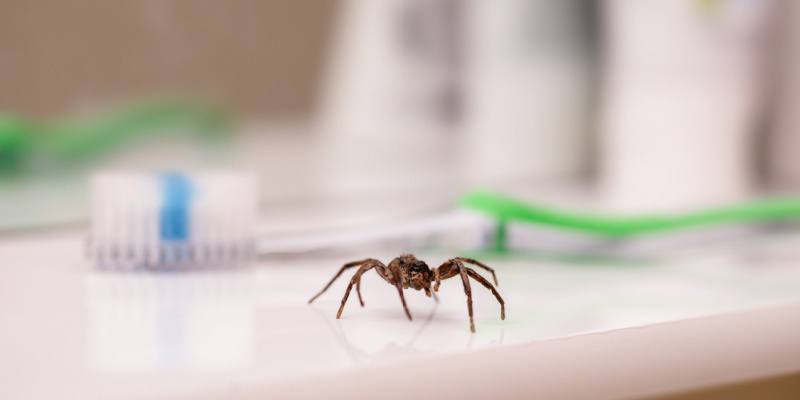Are spiders turning your peaceful sanctuary into a nerve-wracking house of horrors? Don’t worry; we’ve got you covered! Whether they lurk in dark corners or boldly dangle from ceilings, these eight-legged intruders can send even the bravest souls running for cover. But before panic sets in or reckless shoe-swatting begins, let’s delve into the fascinating world of spiders and learn how to coexist peacefully with these much-maligned creatures. Welcome to our ultimate guide on what to do if arachnids invade your humble abode!
Understanding Spider Types
The first step in dealing with a spider in your home is understanding the type of spider you’ve encountered. Not all spiders are the same, and while most are harmless, some can pose risks. Here are common spider types you might encounter.
1. Common House Spiders
These are the most frequent household visitors. They are usually small, brown, or gray and are harmless to humans. They spin webs to catch insects.
2. Wolf Spiders
These spiders are large and hairy and are often seen hunting for prey rather than spinning webs. They are generally not harmful to humans.
3. Brown Recluse Spiders
Recognizable by the violin-shaped marking on their cephalothorax, brown recluse spiders are venomous and can cause necrotic skin tissue if they bite. They are, however, not as common.
4. Black Widow Spiders
These venomous spiders have a distinctive black body with a red hourglass shape on their abdomen. Bites from black widow spiders can be dangerous and require medical attention.
What To Do If You Spot a Spider in Your Home
1. Stay Calm
The most important thing to do when you see a spider in your home is to stay calm. Most spiders are not aggressive and are more frightened of you than you are of them. Panicking may lead to irrational actions that could harm you or the spider.
2. Observe from a Distance
Step back and observe the spider from a safe distance. This allows you to determine the type of spider and its behavior. Take note of its size, color, and any distinctive markings.
3. Do Not Provoke the Spider
Avoid trying to catch the spider if you’re unsure of its identity. Cornering a spider or attempting to capture it may cause it to become defensive, increasing the risk of a bite.
4. Use a Glass and Paper
If you decide to remove the spider from your home, gently place a glass or a plastic container over it. Then, carefully slide a piece of paper or cardboard underneath the container, trapping the spider inside. Lift the container and spider and release it outdoors.
5. Spider-Friendly Options
If you’re not comfortable handling the spider, there are spider catchers available, which allow you to catch and release the spider without direct contact.
6. Prevent Future Encounters
After dealing with the spider, take preventive measures to avoid future encounters. Seal any gaps or cracks in windows, doors, and walls where spiders might enter your home. Keep your home clean and clutter-free, as this will make it less appealing to spiders and their prey.
7. Consider Professional Help
If you’re dealing with a significant spider infestation or are unsure about the type of spider you’ve found, it might be best to consult a pest control professional. They can assess the situation and provide effective solutions.
Safety Concerns
It’s essential to be aware of potential safety concerns when dealing with spiders in your home.
1. Venomous Spiders
If you suspect the spider is a brown recluse or black widow, do not attempt to handle it. These spiders can deliver painful and potentially dangerous bites. Instead, contact a pest control professional for safe removal.
2. Allergies
Some individuals may have allergies to spider bites or their venom. If you experience severe reactions to a spider bite, such as difficulty breathing, swelling, or intense pain, seek immediate medical attention.
3. DIY Approach
If you choose to handle spiders on your own, wear gloves to minimize the risk of bites. Be cautious when capturing or releasing them.
Encountering a spider in your home can be a surprising and sometimes unsettling experience. While not all spiders are harmful, it is best to err on the side of caution and seek professional help. Contacting a reputable pest control company like Perfection Pest Control can provide you with the expertise and tools necessary to identify and eliminate any potential spider infestation in your home. Don’t let spiders take over your living space, call Perfection Pest Control today!
